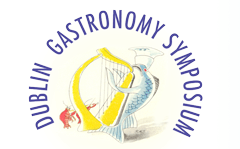Start Date
27-5-2020 5:00 PM
End Date
27-5-2020 5:15 PM
Description
The normative aspects of food, especially regarding women and gender, are pervasive, as Katharina Vester (2015, p.137) has noted. Recipe books and domestic manuals have functioned as a way to regulate women’s lives, and food advertizing has been a powerful tool for reinforcing gendered norms. However, food writing can also disrupt those expectations, as is the case in Pat Mora’s collective autobiography entitled House of Houses (1995), a magicalrealist account of the lives of five generations in a Mexican- American family. Focusing mostly on House of Houses, I will attempt to show that Pat Mora writes about food in a way that disrupts patriarchal norms, the norms of white middle-class feminism, norms concerning who deserves to have their stories told, and lastly, literary norms of genre. Mora’s text exemplifies the idea that contrary to popular perceptions, food, in contemporary Chicanx literature, is not just about reassuring grandmothers, but a much more complex and multifaceted theme.
DOI
https://doi.org/10.21427/15mq-cr24
Included in
You Will Find Yourself Disoriented’: Food and the Disruption of Gendered, Political, and Literary Norms in Pat Mora’s House of Houses
The normative aspects of food, especially regarding women and gender, are pervasive, as Katharina Vester (2015, p.137) has noted. Recipe books and domestic manuals have functioned as a way to regulate women’s lives, and food advertizing has been a powerful tool for reinforcing gendered norms. However, food writing can also disrupt those expectations, as is the case in Pat Mora’s collective autobiography entitled House of Houses (1995), a magicalrealist account of the lives of five generations in a Mexican- American family. Focusing mostly on House of Houses, I will attempt to show that Pat Mora writes about food in a way that disrupts patriarchal norms, the norms of white middle-class feminism, norms concerning who deserves to have their stories told, and lastly, literary norms of genre. Mora’s text exemplifies the idea that contrary to popular perceptions, food, in contemporary Chicanx literature, is not just about reassuring grandmothers, but a much more complex and multifaceted theme.
